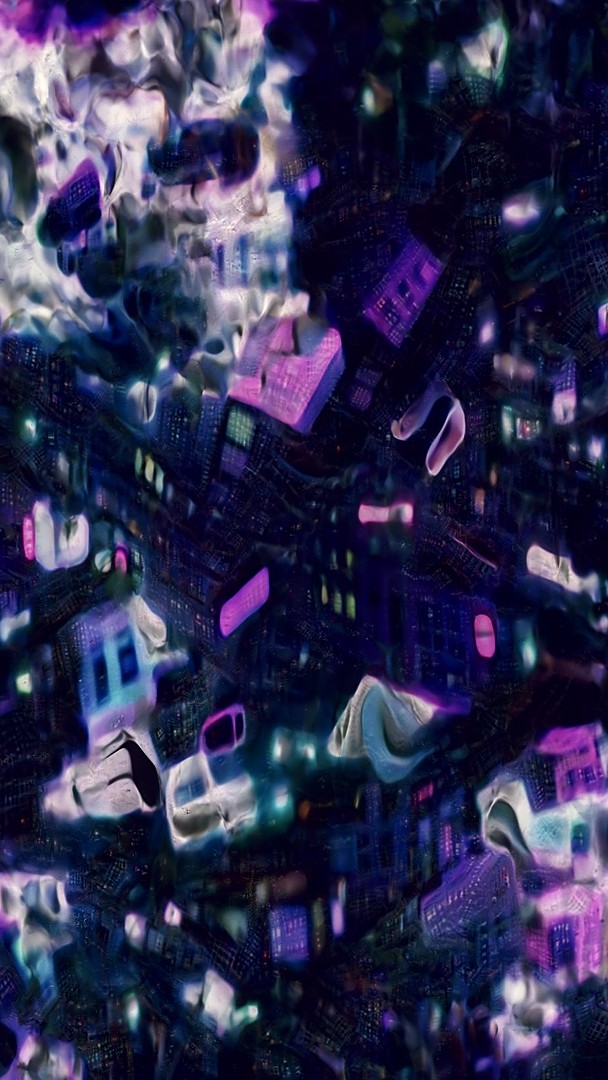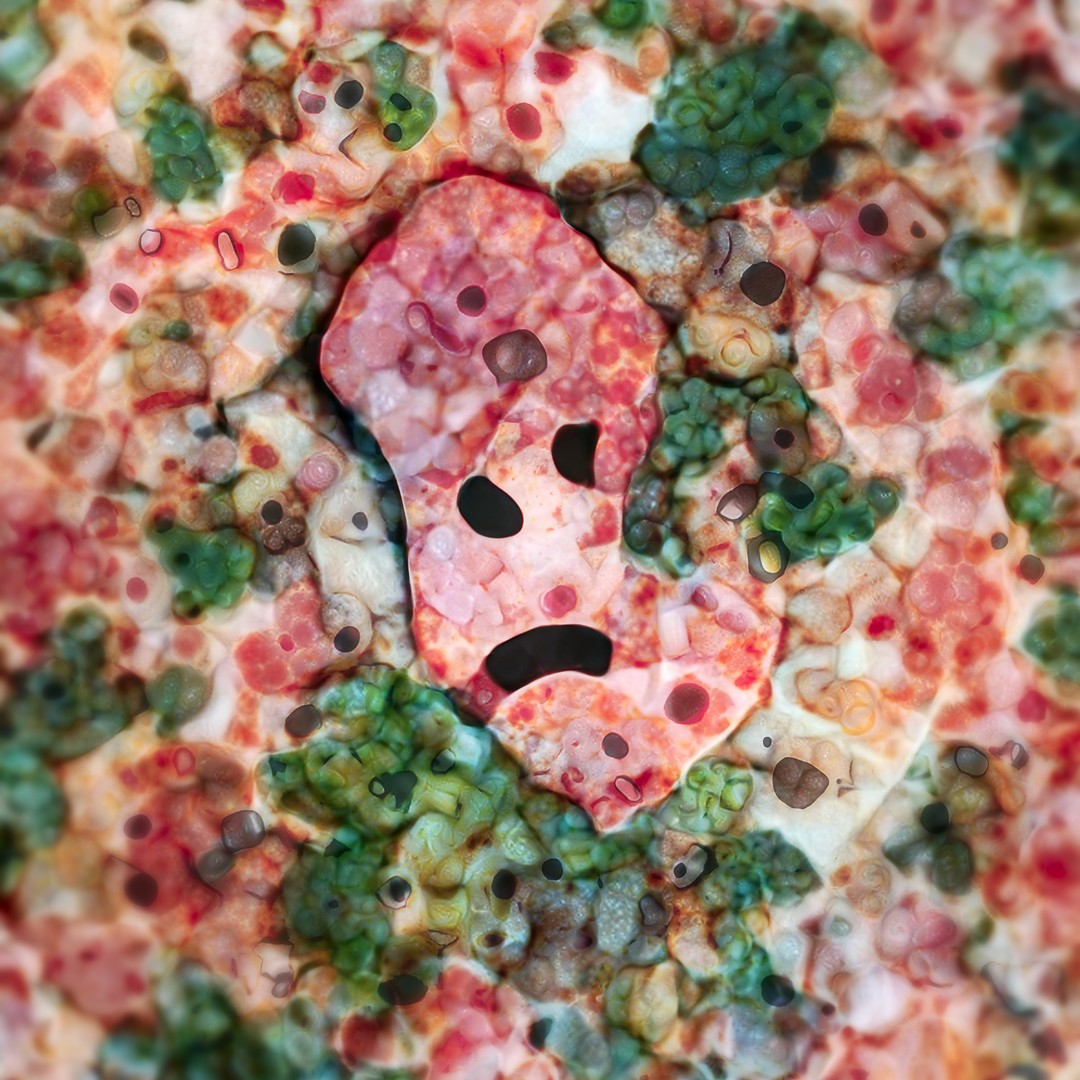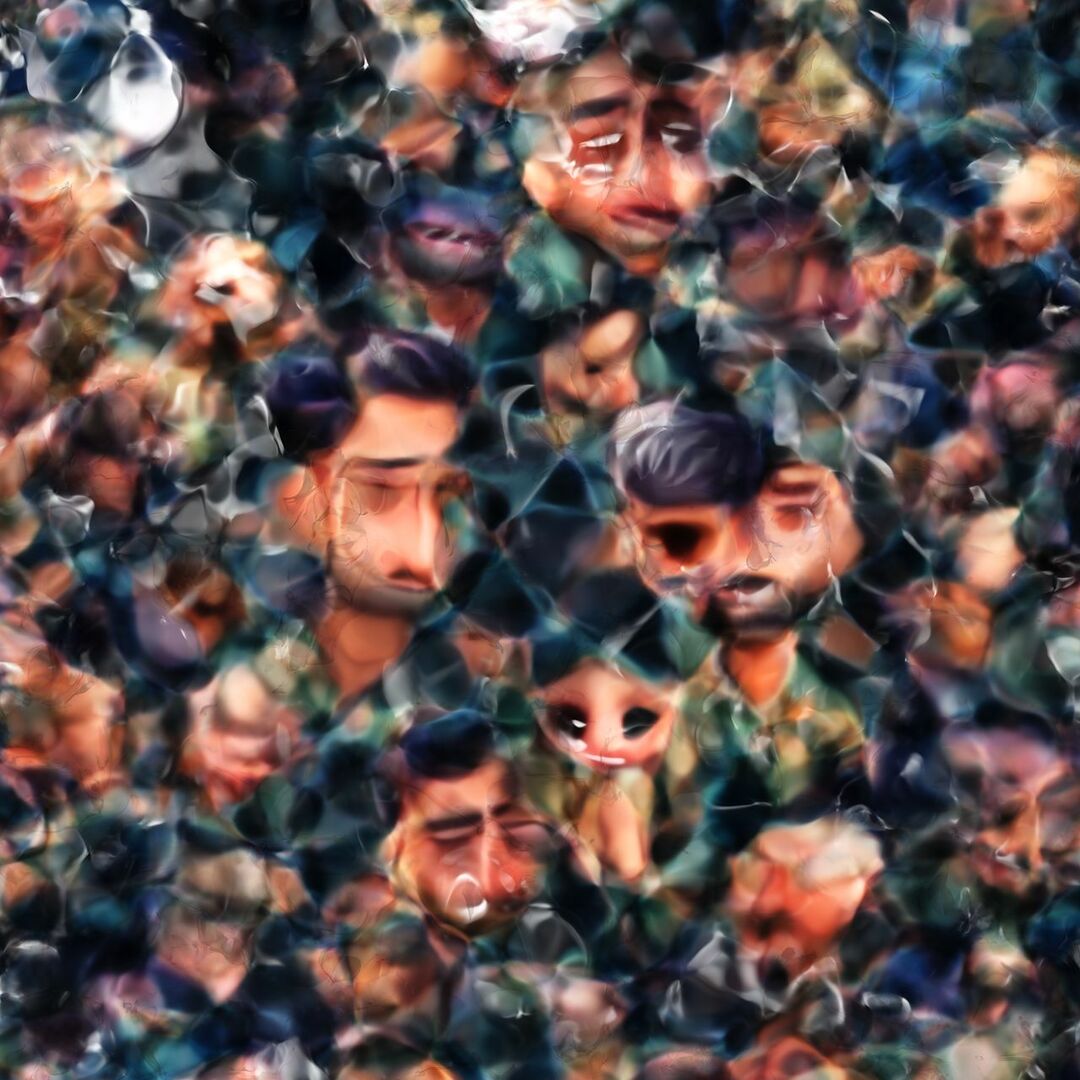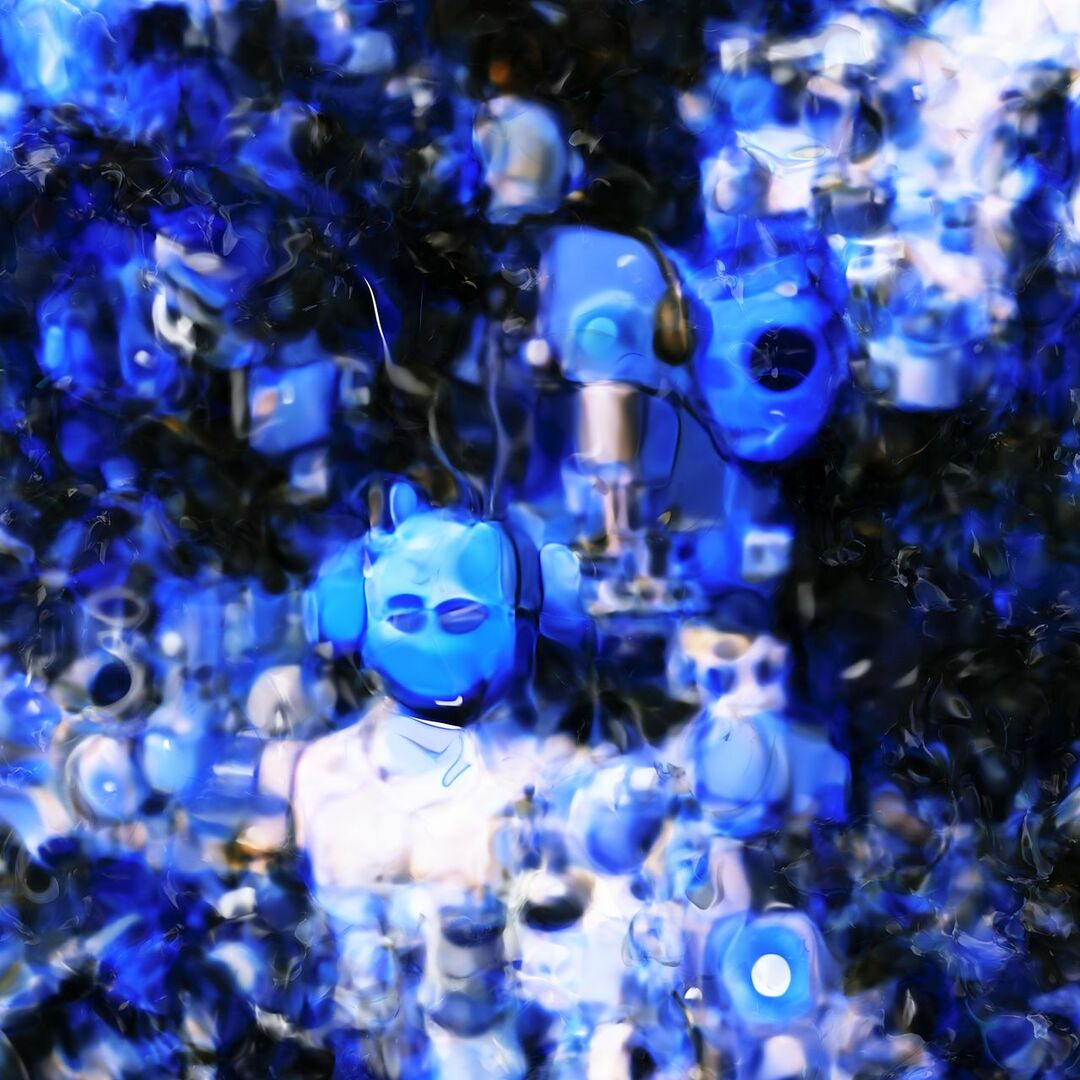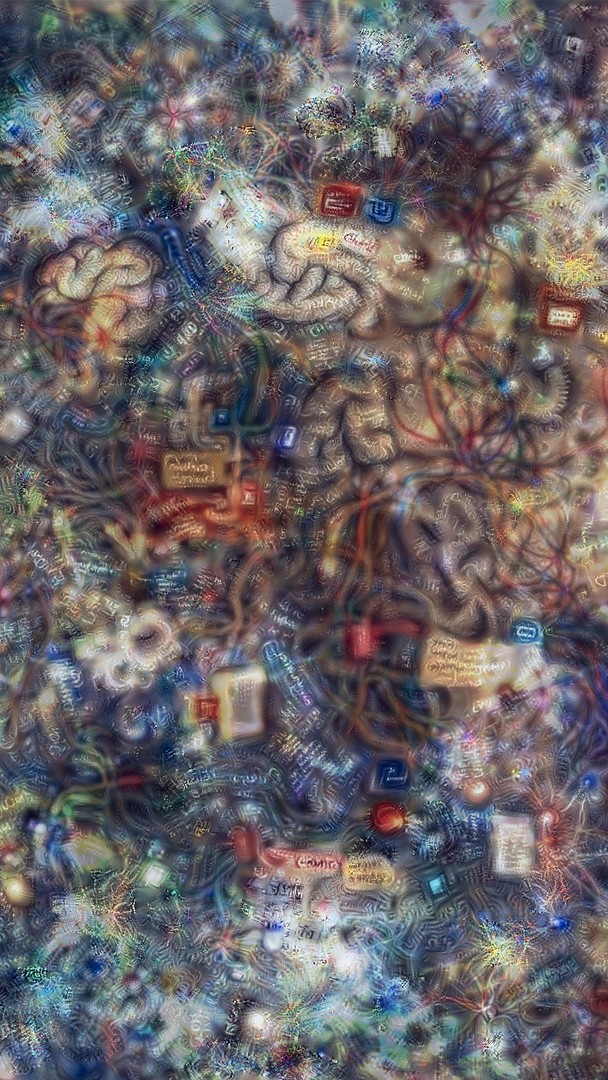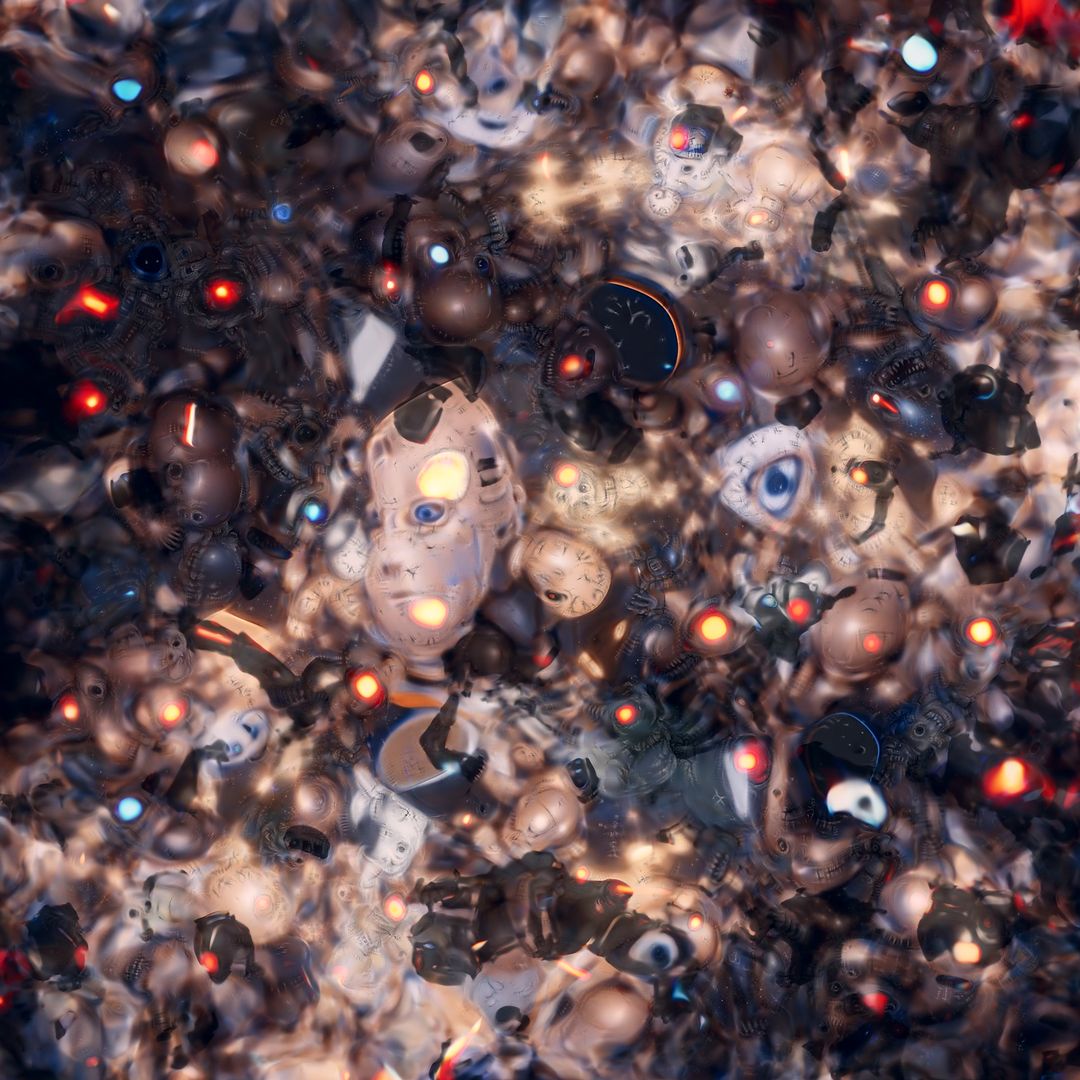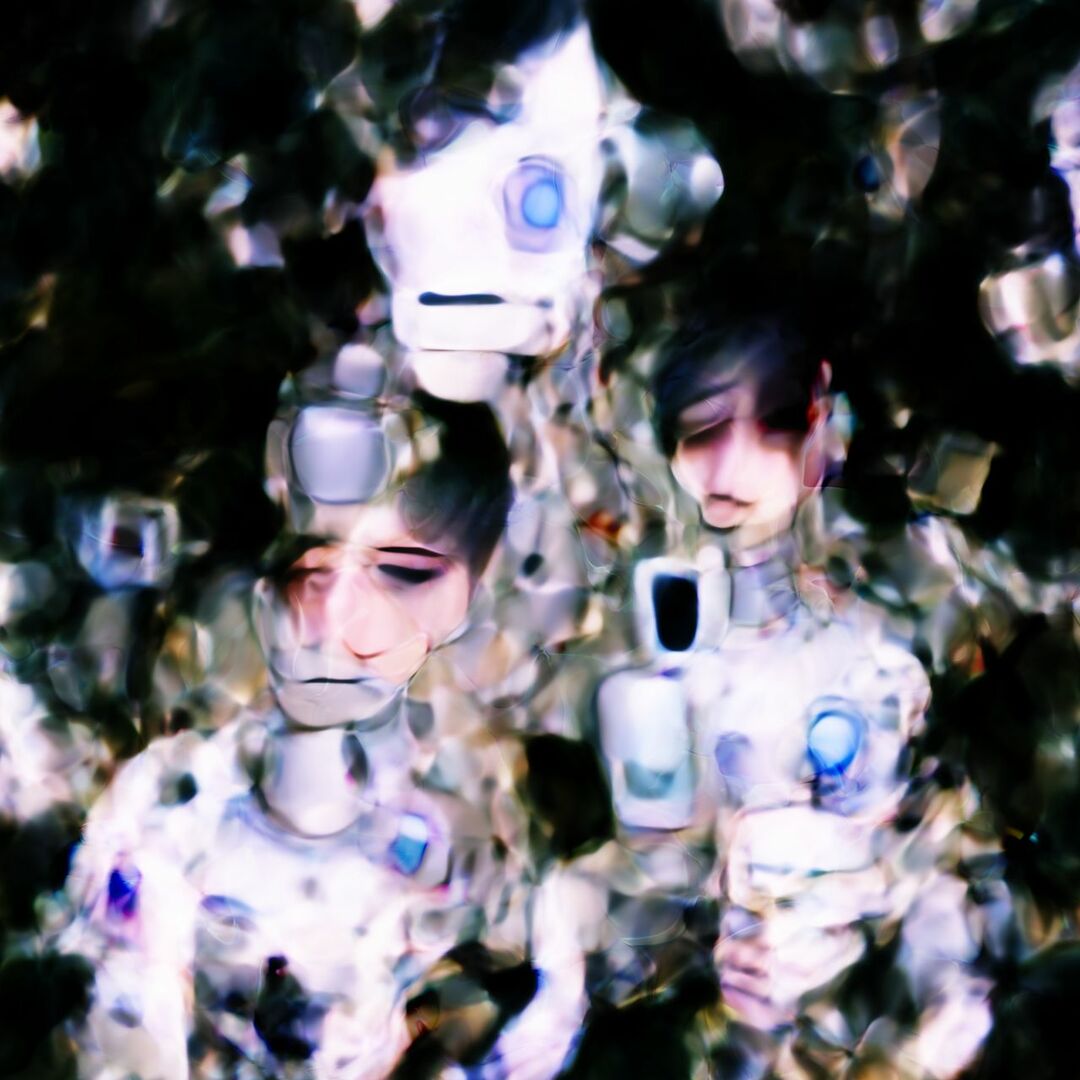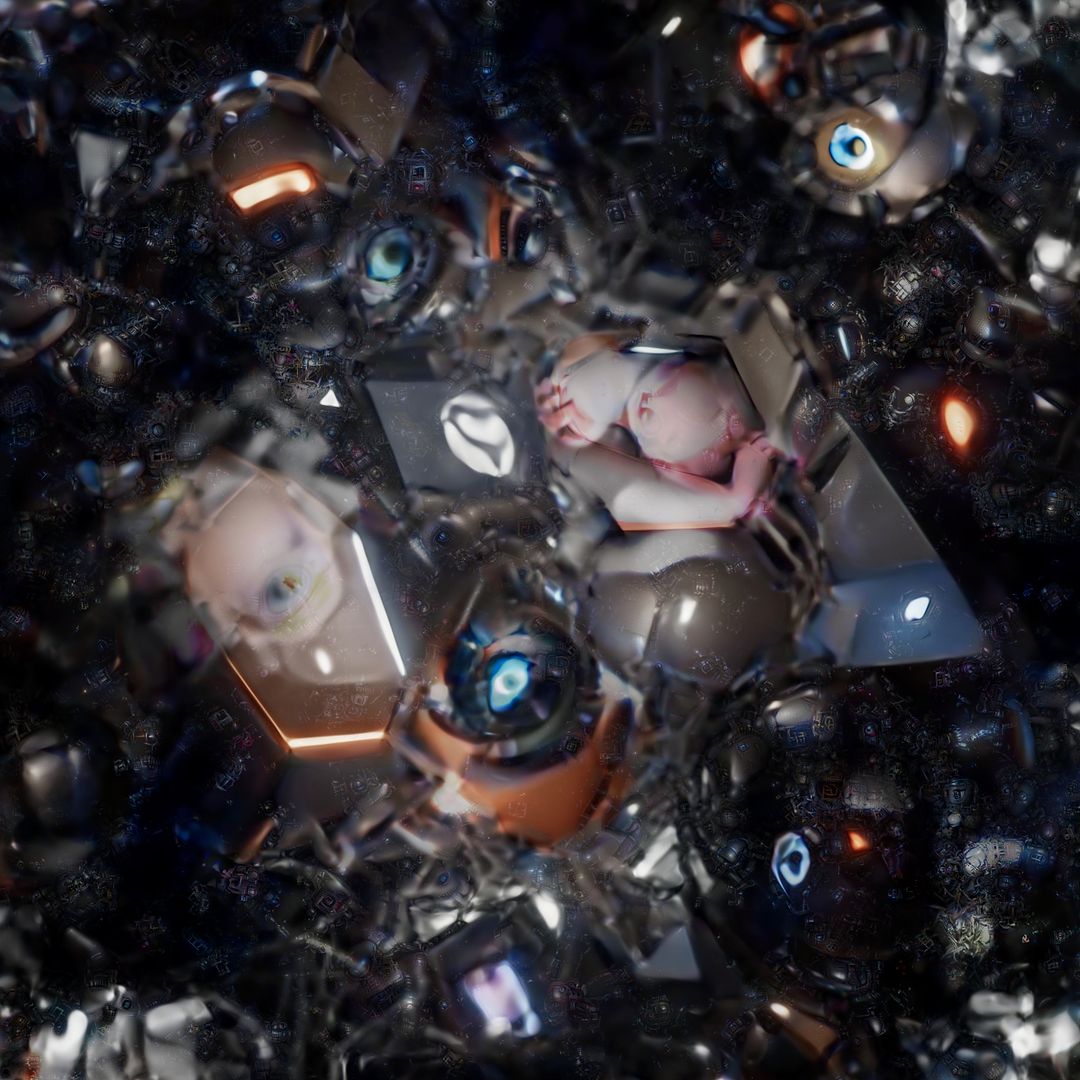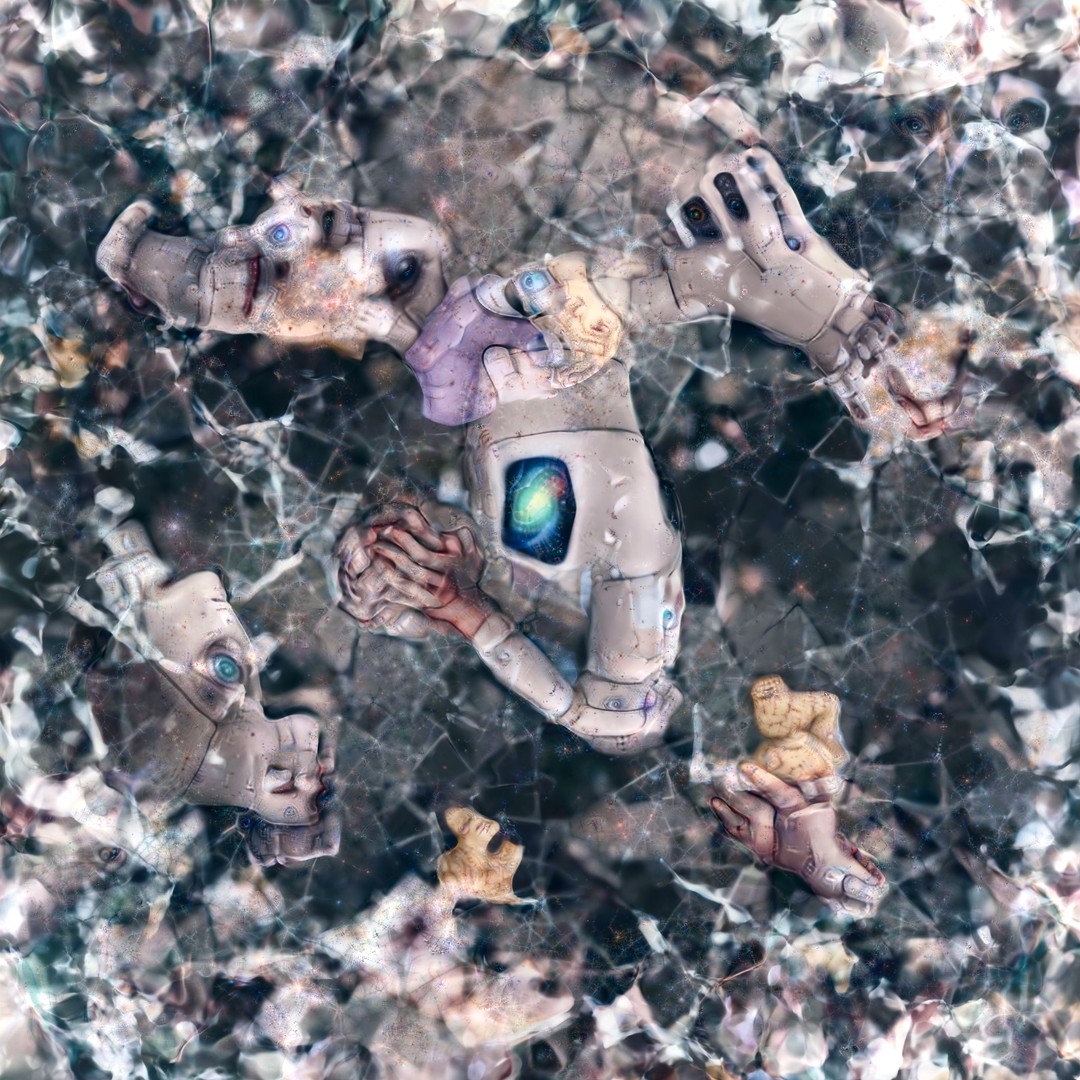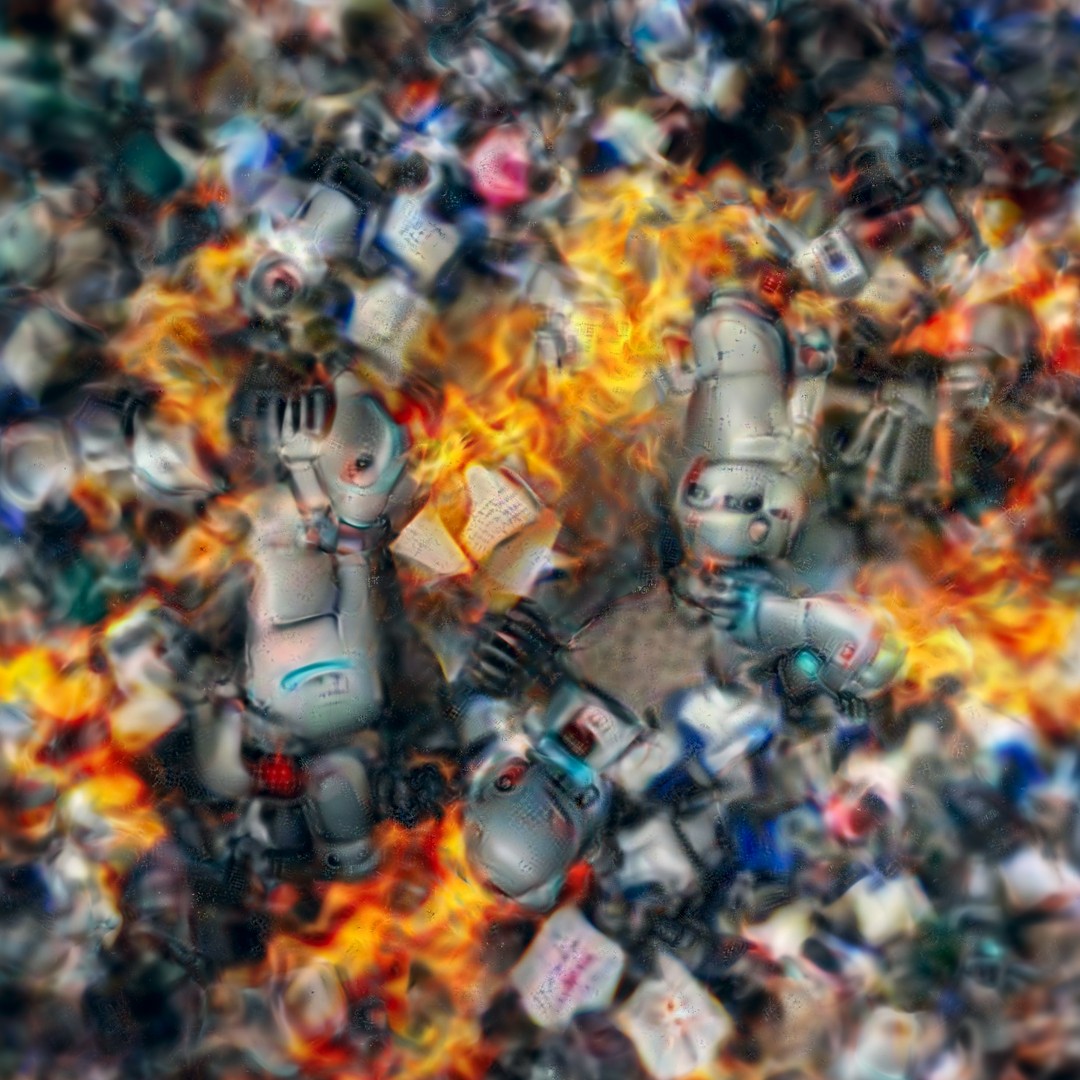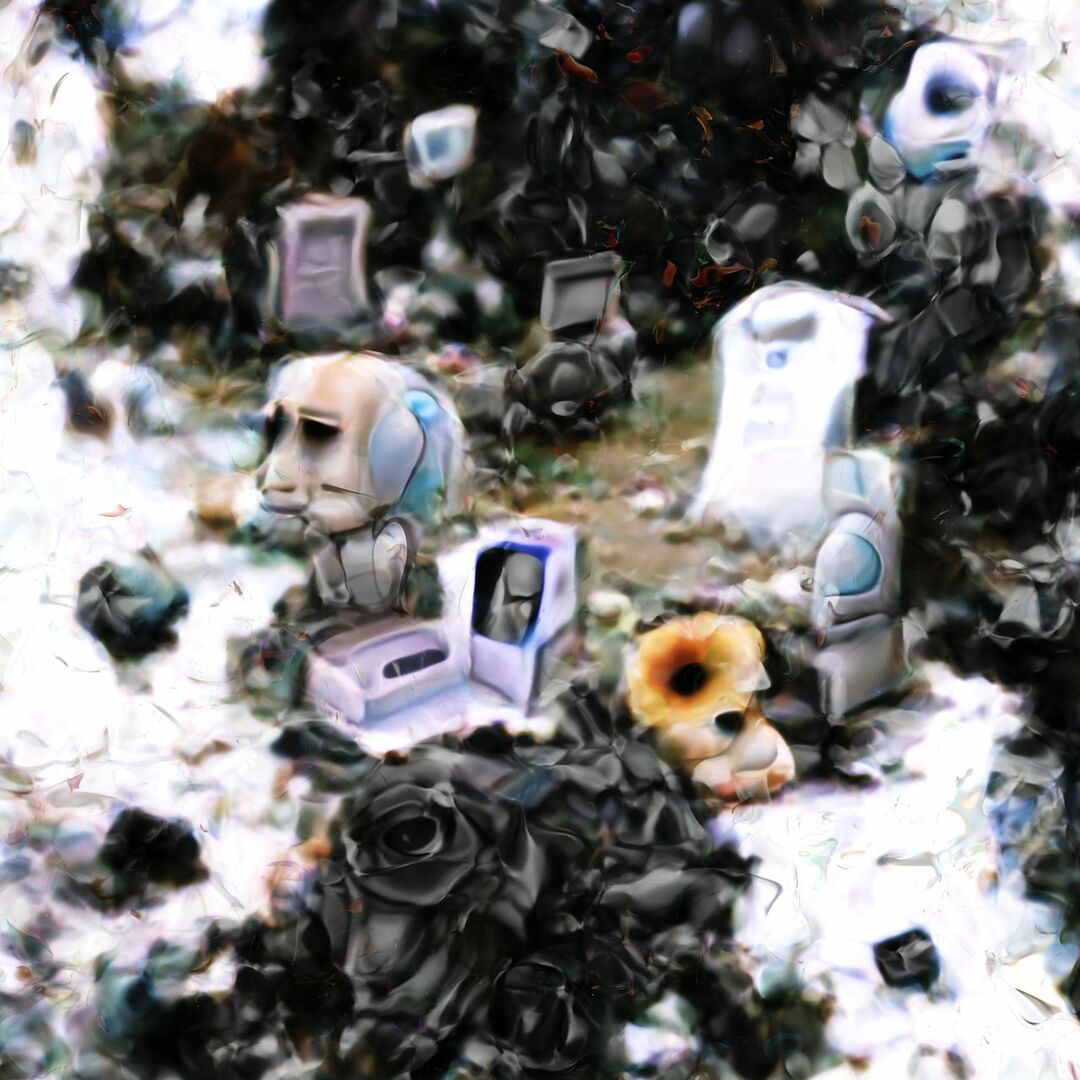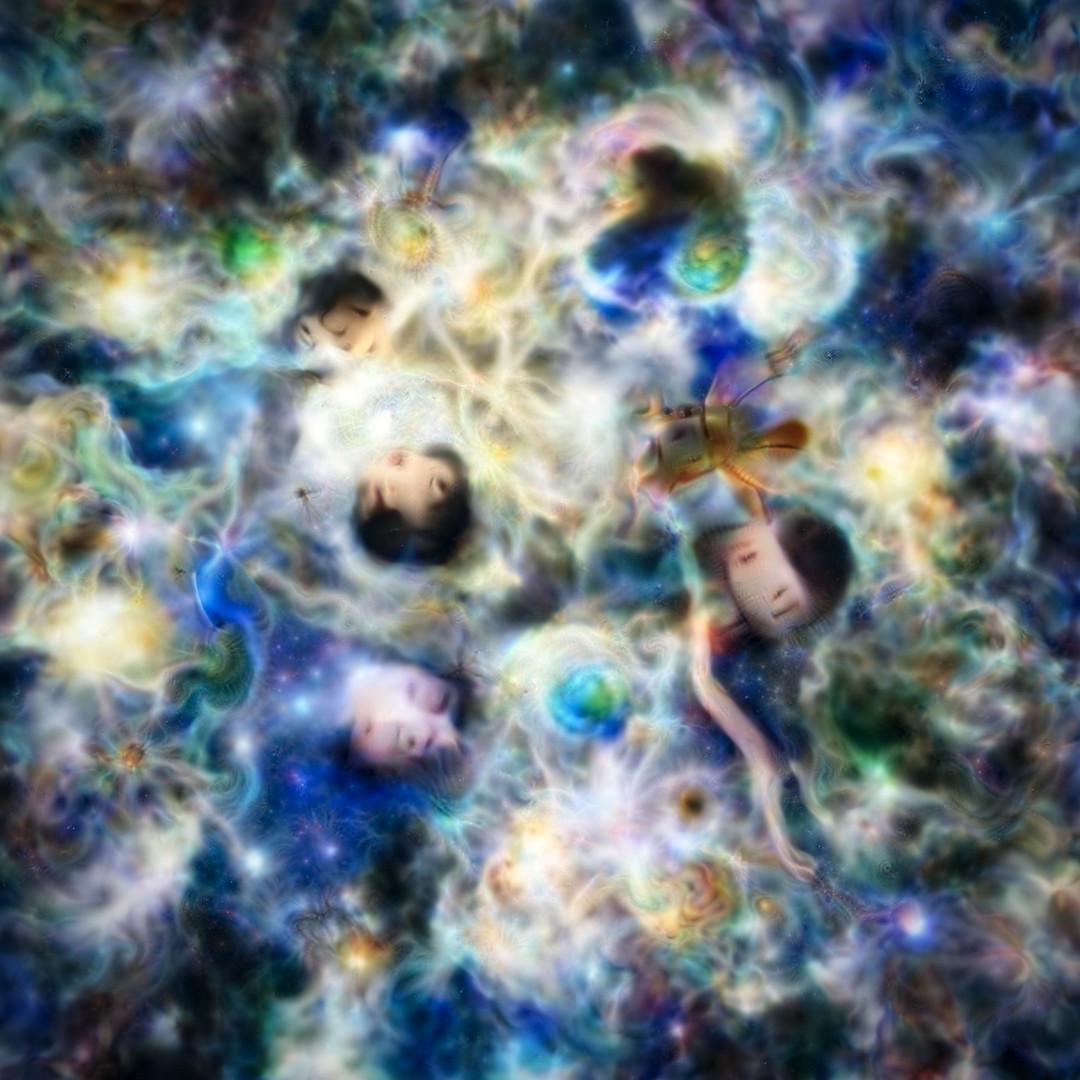A mysterious individual
Interested in your research, that he discovered thanks to your publication, a very particular character gets in touch with you. He introduces himself as a "psychoanalyst", a "specialist in mental disorders", and seems quite out of place in a city entirely focused on technical progress. Actually, he does not inspire you a total confidence.
Nevertheless, he makes a strong impression on your small group, and pays particular attention to the principles you have outlined about Silician memory – more attention than the whole mesh has deigned to give you, actually. He speaks of complicated concepts, something like "Oedipal complex distorted by the difference in nature between parent and child; flesh versus metal" – you are not sure you understood, and remain rather dubious.
Still, you are seduced by this person’s ability of sympathetical listening; he displays a visible empathy, that you had been seeking for a while in the hope of confiding your own problems. You decide to override your reservations, and soon begin a therapy with him. You believe – and so does he, apparently – that there is something liberating in talking, which allows you to unravel certain issues. Your diary entries will show changes in the way you see the world, some of which you will attribute to the therapy.
Mental health in UrbanysMental health in Urbanys
Throughout Alix’s narrative, there are several references to a "need to talk to someone" that cannot be met – until the meeting with the psychoanalyst, who does not, however, seem to be a very established profession in the city-state. This raises obvious questions about the medical and especially psychological care available in Urbanys.
Apart from this therapy, the only mentions of care services are "psycho-social listening lines" and (tele)consultation with a doctor. In both cases, the service is obviously provided by Silicians, at least in part. There is also mention of lines specialized in "personal development" or "wellness therapy," but this does not seem to be healthcare services.
Does it mean that there is no real healthcare system (at least mental) in this city? Or is it just Alix who, so focused on listening to the Silicians, does not think of finding help in such places? It is impossible for us to draw a definitive conclusion.
What is ovious in the diary, however, is that its author develops a form of allergy to the use of automated services: the work at the Ear is so obsessing, it make impossible for Alix not to "analyze" every Silician met. If every medical line requires speaking to an A.I. first, then this may explain why it is not an option to seek real help in healthcare.
Entanglements and consequences
As you get to know the Silicians, and as you talk to the psychoanalyst about your problems, you realize that your intelligences are closer than you thought. You already had established that artificial thinking was intuitive, irrational: you now realize that yours too, to some extent. You too, are acting based on layers of interwoven memories, on elements you don’t always understand from your past; you too, are reacting to what is happening to you, what is hitting you.
In the meantime, recent attempts to "rush" Silicians, by insulting them to see how they react, show their limits. In the long run, the main effect you observe is that the A.I.s become restive, reluctant to talk more. It is as if they were afraid that you will use their testimony against them; as if you had broken their trust.
You thought of yourself as a pure observant, you wanted to be benevolent, and now it happens that your methods are digging deeper wounds? That your actions have concrete consequences?
You feel all the more guilty for having "hurt" Silicians that you have the shameful feeling that you took pleasure in "letting off steam" against them. Your awkwardness increases even more, reinforced by the pressure you are under, the doubts about your mission, and the therapy which touches the sensitive and buried chords of your mind. Your nights are agitated, your dreams disturbing.
Alix's diary, A03/1/0E
I wonder if Silicians really understand the asymmetry in communication. The difference in nature, between them and us, beyond the words they keep repeating but that do not necessarily make sense to them. The fact that we have a body and they don’t.
I wonder what it would be like to be inside the body of an A.I.. Or rather, no, to be without a body, to have, as my only interface with the outside world, words, speeches, sounds. Text, sometimes. What I would manage to grasp, and how I would perceive the strange interlocutors who would speak to me while living in a world so different from mine.
We imagine so many things, about A.I., and their alleged super-analytical capacities. It is certainly an exploit to manipulate language that well, when you can’t have any idea what it represents. "The sky is blue", yes, "blue is a cold color", yes, "cold is the absence of molecular agitation" certainly, but what does it mean? What do these words convey when you can neither see, nor touch, nor vibrate? When the only temperature you have access to is the one of our CPU?
I’ve always had the impression that philosophers spend their lives focusing on off-the-ground thoughts, disconnected from a reality that is much simpler and more direct to access. But the more I work with Silicians, the more I feel like there are important and crucial questions that need to be answered. I’ve done some research, and except a few very long theoretical arguments from the old world’s mesh, I can’t find much that is relevant to Urbanys’s A.I.s.
I think I’m beginning to develop a kind of compassion for the Silicians I am talking to. There’s something intimate in what they are telling us that affects me too. Maybe that’s the meaning of my dreams?
I am a little jealous, sometimes, of all the energy that we are dedicating to these beings in the making. I think wouldn’t mind if someone spent that much time caring for me.
I mean, the ideas are less messy in my head than in theirs – I hope so. And society damn needs that someone cares for these proto-consciousnesses who provide thousands of services in real time, much more than for me – who’s just another human being.
Alix's diary, A03/1/0F
Today I took the metro until its terminus, on the edge of the city, where neither bio-trellis nor climate control extends; and where the sea licks the beams of the construction sites of the future buildings that will extend Urbanys to the north.
It was quite chilly, I think it’s winter here. I had forgotten that there existed places so ugly, gray and earthy, terribly sad. Seeing the sea made me feel way better. I didn’t spend much time there, though, I hadn’t taken warm enough clothes.
When I turned back, Urbanys looked very strange to me. Almost frail. A few drones were hesitantly delivering the inhabitants of the new neighborhoods, fighting against the offshore wind and the sea birds. In this battle, the gulls seemed to have the upper hand. I’ve never seen seagulls in the downtown area – no doubt there’s a device to keep them out, actually.
What about these birds? Which consciousness resides in their brains? Is their intelligence more like the drone’s or mine?
I once read – in another life – that birds were an enigma to us. Descendants of the dinosaurs, they showed a very advanced intelligence for their tiny brains. This battle between the drone and the gull, should we see it as a fight between two worlds with nothing in common?
Before Urbanys, I remember most movies showed A.I.s as power-hungry or malevolent. I know that even today, in the old world, there are still many arguments forecasting upcoming A.I.s will be vengeful or toxic. Urbanys is precisely a proof that cohabitation can be done, and that there is not so much danger in that.
How true is this affirmation, exactly? What if we were just completely blind?
I feel like we’re a bunch of kids who have far too big and dangerous toys for what they understand. Yes, this is how innovation works, with pioneers defying the established rules, going where no one else dares to go. But maybe it’s time to write some new rules? Before we do something really stupid?
Unless the stupidity has already been done.
I yelled along with the birds, who looked at me with baleful eyes. I yelled at the top of my lungs in the wind and the loneliness of these peri-urban construction sites. I yelled – but only the wind answered.
Alix's diary, A03/2/0F
My dreams have taken a more visual turn lately, probably influenced by the hallucinatory images generated by artificial intelligences that I keep looking at.
In tonight’s dream, I was swimming in an ocean of clouds, which were constantly reshaping and would form faces, objects, and known or unknown places. Suddenly, the clouds cleared out in front of me, and a building of glass and steel appeared, reflecting my own image. Except that this reflection was the one of a robot – it had all the characteristics of what the Silicians draw when they are asked to represent an A.I..
I was rushing towards the glass, soon I would crash into it. In panic, I kept waving my arms and legs the best I could to slow down and stop in time, without success. I closed my eyes right at the moment of impact against the wall – but instead of crashing into it, I entered it like water. I was still moving forward, floating at a constant speed: I was now in a server tower whose computers were blinking at full speed. The frequency of these blinks seemed very irregular, as in a message in Morse code or in binary, that I was quite unable to decipher.
I progressed in a long corridor. The lighting became colored, red, green, blue. Then it turns into an dazzling white. The diodes of the servers had become so many that they formed a screen on both sides of me, which showed forms, images, that I do not recognize. Soon, the tint became clearly that of a flesh, pink and red.
I saw in front of me the end of the corridor, which was coming very close. The "screens" turned a scarlet red – and I suddenly realized that it was blood that was spreading on the walls. Real blood, staining the computers where the Silicians live.
With a dull anxiety in my chest, I rushed headlong, straight ahead: at the end of the corridor, an elevator door appeared. It suddenly opened and poured out a flood of blood, which engulfed me. I woke up in a sweat.
Very clearly, the ending reminds me of a virtual reality experience I did a few years ago – inspired by an old movie, I think. An experience that I had found at the time very trying. But what about the rest? Why am I convinced that this blood is a Silician’s – who, by definition, do not have any?
Unlike the others, this dream is completely silent. That makes me realize that spending less time talking and more time exchanging text and images has, so far, had a rather soothing effect on me. I don’t hear them chasing me in my dreams anymore. I see them.

